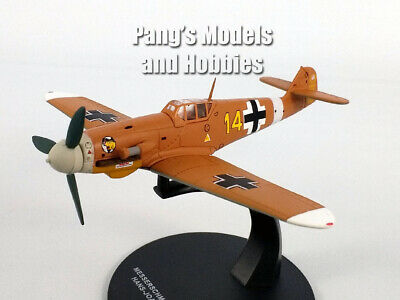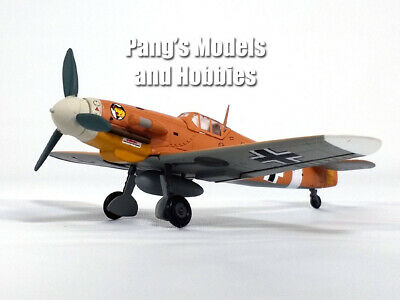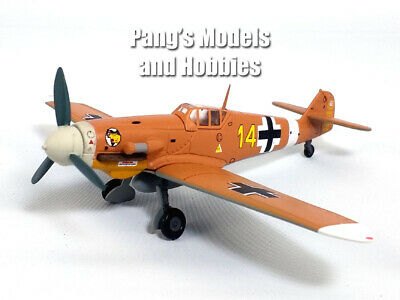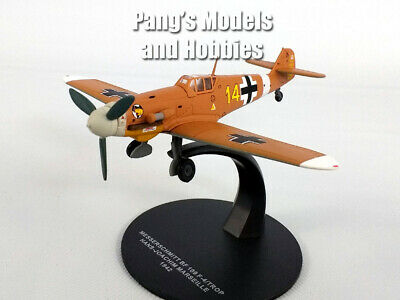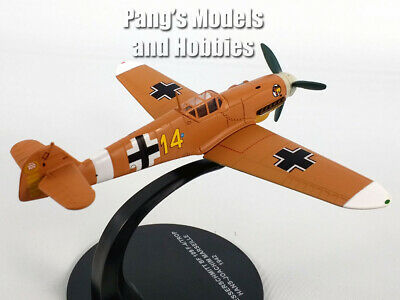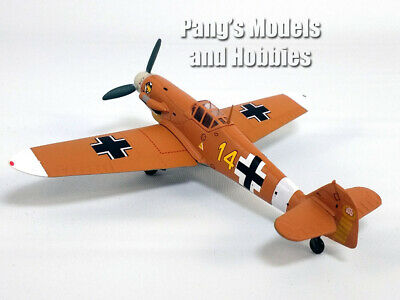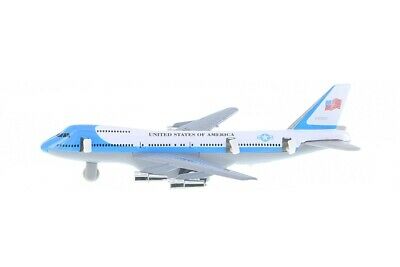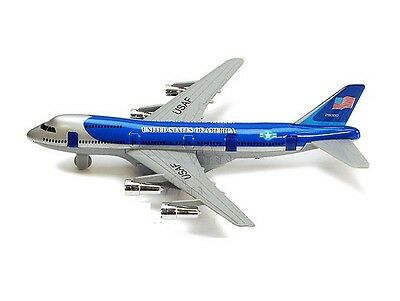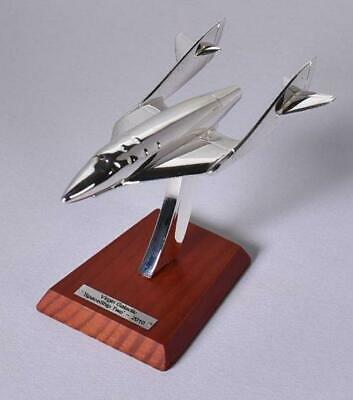-40%
Messerschmitt Bf-109F Trop (Bf-109) 1942 1/72 Scale Diecast Model
$ 19.53
- Description
- Size Guide
Description
1:72 Scale Metal Diecast and Plastic - Messerschmitt Bf-109F Trop (Bf-109) 1942 – Length: 4.75" Wingspan: 5.5”This Bf-109 model is a single seat plane. The fuselage is metal and the wings are plastic. The cockpit is glue shut. It has no pilot/crew figures included.
The landing gear is optional, the pieces for the landing gear will need a little glue to be kept in place. A fuel tank for the fuselage is optional
.
A display stand is included.
This is really a "no-play" model or a "display-only" model. It is mostly metal and very heavy. It also has a number of antennas which look great but are very fragile. The box is labeled as not suitable for children under 14.
The maker of this model did a good job, specifically the color scheme and the markings are very crisp and clear. The panel lines and hatches are very nicely done (engraved).
This model comes in a plastic shell that measures
6 inches by 6 inches by 2 inches.
The Messerschmitt Bf 109, commonly called the Me 109 (most often by Allied aircrew and even amongst the German aces themselves, even though this was not the official German designation), is a GermanWorld War II fighter aircraft designed by Willy Messerschmitt and Robert Lusser during the early to mid-1930s. The "Bf 109" designation was issued by the German ministry of aviation and represents the developing company Bayerische Flugzeugwerke (at which the engineer Messerschmitt led the development of the plane) and a rather arbitrary figure. It was one of the first truly modern fighters of the era, including such features as all-metal monocoque construction, a closed canopy, and retractable landing gear. It was powered by a liquid-cooled, inverted-V12 aero engine.
The Bf 109 first saw operational service during the Spanish Civil War and was still in service at the dawn of the jet age at the end of World War II, during which time it was the backbone of the Luftwaffe's fighter force. From the end of 1941, the Bf 109 was steadily being supplemented by the superior Focke-Wulf Fw 190.
